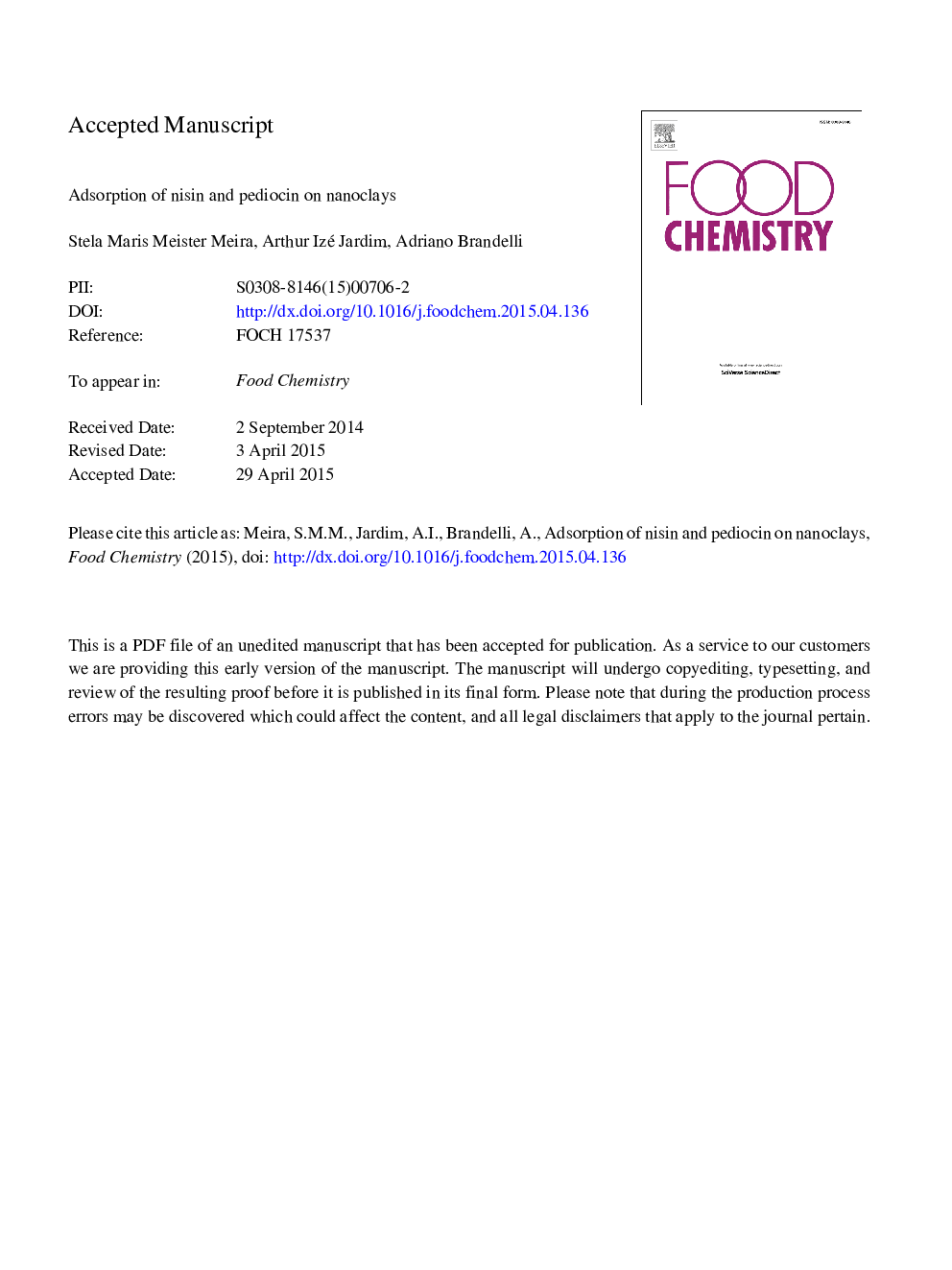| Article ID | Journal | Published Year | Pages | File Type |
|---|---|---|---|---|
| 7590654 | Food Chemistry | 2015 | 32 Pages |
Abstract
Three different nanoclays (bentonite, octadecylamine-modified montmorillonite and halloysite) were studied as potential carriers for the antimicrobial peptides nisin and pediocin. Adsorption occurred from peptide solutions in contact with nanoclays at room temperature. Higher adsorption of nisin and pediocin was obtained on bentonite. The antimicrobial activity of the resultant bacteriocin-nanoclay systems was analyzed using skimmed milk agar as food simulant and the largest inhibition zones were observed against Gram-positive bacteria for halloysite samples. Bacteriocins were intercalated into the interlayer space of montmorillonites as deduced from the increase of the basal spacing measured by X-ray diffraction (XRD) assay. Infrared spectroscopy suggested non-electrostatic interactions, such as hydrogen bonding between siloxane groups from clays and peptide molecules. Transmission electron microscopy did not show any alteration in morphologies after adsorption of antimicrobial peptides on bentonite and halloysite. These results indicate that nanoclays, especially halloysite, are suitable nanocarriers for nisin and pediocin adsorption.
Related Topics
Physical Sciences and Engineering
Chemistry
Analytical Chemistry
Authors
Stela Maris Meister Meira, Arthur Izé Jardim, Adriano Brandelli,
